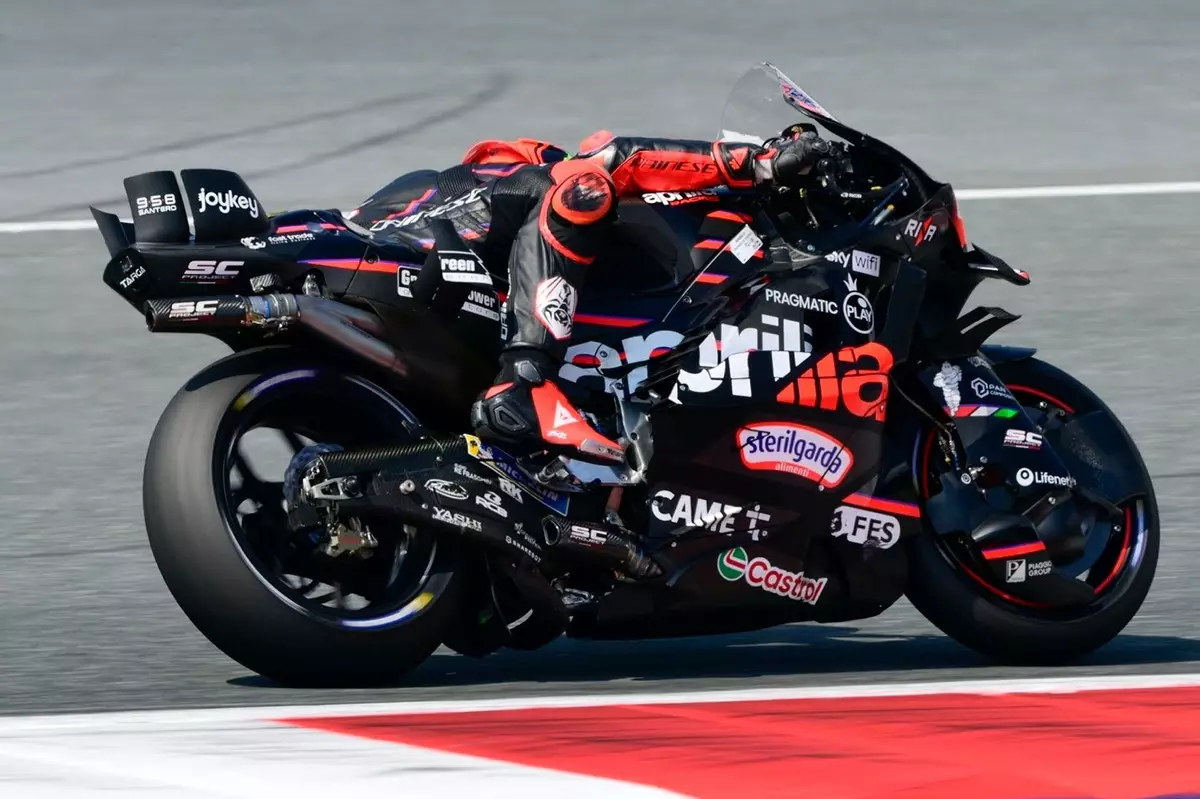In the high-stakes world of MotoGP, qualifying and warm-up sessions often serve as poignant indicators of a rider’s potential during the race; however, they rarely tell the full story. Marco Bezzecchi’s recent performance at the Austrian Grand Prix exemplifies this truth. Despite securing pole position—a testament to his raw speed—his subsequent sprint result highlighted how elusive consistency can be in this fiercely competitive arena. This stark contrast underscores a fundamental aspect of motorcycle racing: raw power and speed are necessary, but not sufficient. The full equation involves strategy, adaptability, mental resilience, and sometimes, a bit of luck.
Bezzecchi’s story in Austria reveals an athlete in pursuit of mastery over a complex craft. His initial struggles in Friday’s free practice, where he was barely 18th fastest, set an ominous tone that seemed to suggest a challenging weekend ahead. Yet, through meticulous adjustments and guidance from seasoned mentors like Valentino Rossi, Bezzecchi demonstrated that progress is often a product of perseverance rather than instant gratification. His subsequent turnaround—culminating in a sensational pole—attests to the importance of iterative development and the willingness to learn from setbacks. This is not merely about riding faster but about harnessing setbacks as fuel for future success.
The significance of Bezzecchi’s warm-up performance on race day cannot be overstated. His lap time outpaced even the previous race’s fastest on this layout, hinting at a hidden potential that, if nurtured correctly, could translate into a formidable race effort. However, qualifying’s inexact nature, coupled with unpredictable weather conditions, suggests that even the most optimistic predictions are subject to change. The storm clouds looming over the Styrian circuit serve as a grim reminder that in racing, as in life, planning and preparation must be adaptable to ever-changing circumstances.
Overcoming the Odds: The Art of Strategic Adjustment
The core challenge for Bezzecchi—and many others vying for victory—lies in converting initial speed into sustained performance across race distance. His acknowledgment that he is still “missing a bit of work in terms of pace” reveals a humble understanding that fine-tuning is a continuous process. Racing at this level demands a delicate balance between aggressive pioneering and calculated conservatism, especially when weather unpredictability looms large.
Bezzecchi’s reflections also cast light on the psychological aspects of racing. Maintaining confidence after a disappointing sprint, yet remaining motivated to improve overnight, proves crucial. His statement about working “tonight to find something more” reflects a growth mindset emphasizing continuous improvement. Such mental resilience can be the differentiating factor between those who fade under pressure and those who rise to the occasion. This proactive approach—where the rider views each session as an opportunity for refinement—often determines who will seize the moment in the race’s critical phases.
Importantly, the nuanced dynamics of bike setup and race strategy are central to effective performance. While warm-up times may offer limited predictive power, they serve as invaluable data points for making last-minute adjustments. Bezzecchi’s careful analysis, combined with strategic decision-making, could give him an edge if the weather stays clear. Conversely, if rain intervenes, adaptability becomes paramount. Those who can quickly switch gears—literally and figuratively—will have the best shot at capitalizing on the chaos.
Weather: The Great Equalizer and Opportunist
When considering the Austrian GP, one cannot ignore the growing anxiety about the weather. Rain, often seen as an unpredictable nuisance, can dramatically alter the race’s outcome. It levels the playing field, favoring riders with superior control and adaptability, and sometimes crushing the hopes of those overly reliant on dry-weather performance. For Bezzecchi, this element introduces an additional layer of complexity—one that tests both his technical mastery and mental agility.
Historically, the Styrian track is notorious for sudden weather shifts, which can turn a seemingly secure lead into chaos or offer unexpected opportunities. The current forecast keeps teams and riders on edge, their strategies in flux. This uncertainty serves as a stark reminder that preparation alone isn’t enough; a rider’s ability to adapt to the evolving conditions often determines victory or defeat.
Ultimately, Bezzecchi’s pursuit of potential victory at Austria is emblematic of a broader truth in sports—that relentless effort, strategic flexibility, and perseverance amidst adversity forge champions. There is a heroism in facing unpredictable elements head-on, in fighting for every tenth of a second after setbacks, and in refusing to accept mediocrity amid fierce competition. Whether he claims the podium or not, the journey of refining his craft continues—an inspiring testament to the relentless spirit that fuels elite motorcycle racing.


Leave a Reply